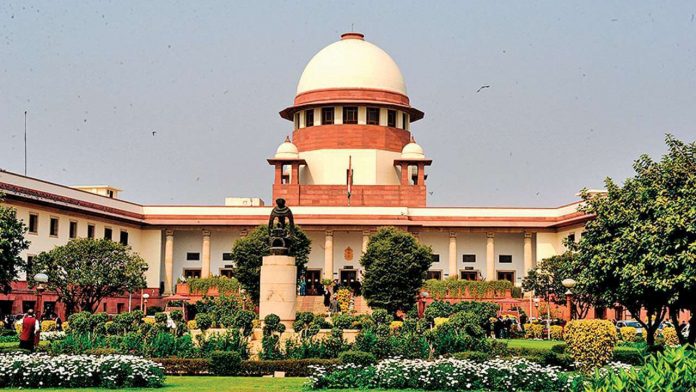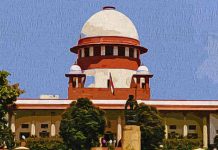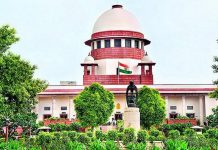This article is written by Bhumika Dandona from the School of Law, Sushant University, Gurgaon. In this article, she deals with the aspects of the Citizenship Amendment Bill and possible implications of international relations of India.
Table of Contents
Introduction
The Indian government caused great controversy when it introduced the Citizenship (Amendment) Bill in 2019. The interpretation of most of the people was that it would lead to a division of the country based on religious lines. Not only from within India, but the Bill also drew colossal condemnation from different parts of the world. So much so that ties with a few countries remained outwardly awkward for some time. In such circumstances, the Supreme Court’s intervention would be a big thing. Its decision regarding the new Act would either sever or keep intact India’s relations with other nations.
What is the Citizenship Amendment Bill
The Citizenship (Amendment) Bill, 2019 sought to revise the Citizenship Act, 1955 with the intent of declaring the individuals belonging to Hindu, Sikh, Jain, Parsi, Buddhist, and Christian communities as legal migrants under Section-2(1)(b) of the Act. It is so if they entered the country before or on 31st December 2014. Further, a newly added Section-6B states that the Central Government may, on this behalf, issue a certificate of registration or naturalisation to the individuals so referred. Such individuals will then become citizens of India from the day of their entrance into the country.
However, states requiring an Inner Line Permit that is, Nagaland, Mizoram and Arunachal Pradesh, and Sixth Schedule areas in northeastern states including parts of Assam, almost the whole of Meghalaya, and parts of Tripura, will not be able to avail these rights.
The Central Government cannot reject any application for citizenship on the ground of any pending proceeding against the individuals. Such a proceeding will stand abated once the conferment of citizenship takes place. Individuals will also be entitled to all the rights and privileges that come with the receipt of such applications.
The addition of clause-(eei) made to Section-18(2) states that the Central Government may prescribe the conditions, restrictions and manner for issuing a certificate of registration or naturalisation under the concerned section. Section-7D of the Act also witnessed two minor additions which state that the Central Government may cancel the OCI (Overseas Citizen of India) registration on the ground of violation of any provision under the Act. The OCI cardholder must have a chance to be heard before the government passes any order in this regard.
The final addition relates to the Third Schedule of the Act. It provides that the aggregate period of residence or service in the Indian government must not be less than five years to qualify for naturalisation of the Individuals mentioned herein. Both the houses of the Parliament that is, Lok Sabha and Rajya Sabha passed the Bill on 11th December 2019 and it became the Citizenship (Amendment) Act, 2019. It came into force on 10th January 2020.
Internal reactions
Public opinion
The CAA angered a lot of people, specifically the Muslims. The reason behind their annoyance was the exclusion of the word ‘Muslim’ from the proviso added to the principal Act. They believe that the Act discriminates based on religion and would isolate the Muslims, being the largest minority community in India. It is against the basic principles of the Constitution of India, 1949.
People in the northeast states had slightly different concerns. They believed that implementation of the Act would lead to a rush of immigrants which may completely change their demographic, cultural and linguistic uniqueness.
Protests against the Act
The Act created quite an uproar across the country. Widespread protests began against the same beginning from 4th December 2019:
- It all started in the Seelampur area of Delhi. Infuriated protesters built an atmosphere of violence, throwing rocks at the police appointed to maintain law and order and vandalising buses, bikes and police booths.
- Students of the Jamia Millia Islamia University also commenced a demonstration from the campus to the Parliament against the proposed legislation. Police made use of tear gas and batons to prevent the students from going further. Students fought back by pelting stones at them.
- Violent protests spread to the other parts of the country. Protesters in West Bengal blocked all the roads and rails and carried out rallies. They set tyres on fire and raised slogans against the Act.
- Uttar Pradesh reported several cases of police brutality and ferocious protests across many of its districts.
- In Assam, violent protests erupted only after the passing of the Bill. Agitators resorted to burning down buildings and railway stations. People organised marches in Tripura.
- The same scenario prevailed in other states.
- Students from Madras University, Aligarh Muslim University, Nadwa College, and Jawaharlal Nehru University also conducted protests to support those disadvantaged by the Act.
- One of the most prominent protests was that of Shaheen Bagh. Residents observed a continuous twenty-four-hour sit for more than a hundred days to show their discontent. They gained the support of various celebrities and activists as well. Their protest ended when the Novel Coronavirus came on the scene.
The Central Government’s stance
The Narendra Modi-led NDA government first proposed the Bill back in 2014. But because it could not go through the upper house of the Parliament, it had to be dropped. When it again came to power in 2019, work upon the Bill began once more. What necessitated its coming into effect was – thousands of Hindus in Assam were subject to exclusion from the National Register of Citizens.
The main idea behind the Bill was simple. There were numerous Hindus in Afghanistan, Bangladesh, and Pakistan, prosecuted and violated at the hands of citizens of those countries. The government said that they had to bring those Hindus to India. They had nowhere to escape the oppression. They too deserved dignified treatment and rights provided to Hindus living in the country.
Another reasoning was that India had been home to illegal Muslim migrants for the past few decades, northeastern states in particular. Muslim countries could accommodate them. But only India could take in Hindus in those nations.
In response to the protests against the Bill and subsequently the Act, the Home Minister Amit Shah issued a statement, saying that the government will not revoke the Act under any circumstances. The government stated that the opposition was provoking people against the law to gather mass support in their favour. It assured that no Indian Muslim had any reason to worry over their identity.
The government also clarified that the Act is not applicable to the Northeastern region since it incorporates the Inner Line Permit states.
The global response to the Act
The Act brought about varying degrees of reactions from several nations due to the global press coverage of the protests against the same. While some countries openly criticised the government’s move, others warned of breaking ties with India:
- The United States Commission on International Religious Freedom (USCIRF), in its response, said that if one sees it in the light of democracy, the Act is the most treacherous act of all times.
- The European Union remained indifferent towards the government’s decision. One can attribute this neutral opinion to the investments in solar projects in India at that time.
- The most astonishing response perhaps came from China that issued a joint statement with Pakistan. The statement read that India’s neighbouring countries were not up for any one-sided sanctions that would make the already aggravated situation more difficult.
- The Organisation of Islamic Cooperation (OIC) made its concern for the Indian Muslims quite well known. This worry came from the belief that the Act is unjust towards the Muslims residing in India. OIC extended its support to them in their battle against the seemingly tyrannical rule.
- The Malaysian Premier (Mahathir Bin Mohamed) questioned whether the Act serves an appropriate purpose because the protests implied otherwise. He further stated that it is the beginning of the end of secularism that India so proudly boasts.
- Protests spread across the globe, from Boston to Hague. The Act, people thought, violates the basic human rights of the Indian Muslims.
- Also, visits by several EU delegates to the Kashmir valley made India’s fears of an international backlash over the policy evident.
So India mostly found itself in isolation on the international front. Its once most trusted allies raised questions on the safety of religious minorities residing in the country. Many nations doubted whether India can maintain its secularism in the coming years or not. What we can infer from such reactions is – strategic interests are not the only part of international alliances. Moral, ethical and religious values have their place in these alliances as well. These things do matter because nations need people’s support in whatever they do. The moment this support lowers down, they will be doomed.
The Supreme Court’s stance
Many people filed petitions in the Supreme Court against the controversial Act. All petitions cited violation of secularism mentioned in the Preamble to the Constitution and Articles 21 (right to life and personal Liberty), 14 (equality), 15 (prohibition of discrimination based on religion, race, caste, sex or place of birth) and 19 (freedoms) under Part-III of the Constitution by the Act.
The SC bench, which consists of Chief Justice Bobde and Justices Gavai and Surya Kant took up the affair for hearing on 22nd January 2020. Only after hearing the matter would it decide whether to refer it to a five-judge constitution bench or not.
When the day arrived, the Court held that it would not pass an interim or stay order on the Act. It stated that no High Court would now be authorised to hear any plea concerning the Act. It has not involved a five-judge constitution bench in this matter as of now. The Court further directed the Central government to file a response to all the petitions within four weeks. The Court has remained silent on the matter ever since.
Possible consequences with respect to International Relations
If the Supreme Court upholds the Act, it will have a massive impact on India’s relations with quite a few nations, particularly the Muslim ones. But before proceeding to that, let’s keep the following situations in mind, apart from the ones specified earlier:
- Countries like Turkey and Malaysia have already been condemning the Act from the beginning.
- As a mark of its displeasure against the Act, Bangladesh refused to send its ministers for ministerial conferences.
- One can not refrain from talking about Pakistan when it comes to anything in regards to the Muslims and India. Pakistani Premier Imran Khan warned of a refugee crisis and urged UN intervention.
- Even Iran blasted India for the CAA and violent protests in Delhi.
- UAE and Saudi Arabia, on the other hand, have been saying that the CAA is a matter internal to India and it would not be appropriate for any country to interfere in it.
- In retaliation to such responses, apart from that of UAE and Saudi Arabia, even India stopped importing resources (oil, steel, etc.) from Malaysia and Turkey.
It is all when the Act has not yet gained the support of the Supreme Court. When it does acquire the same, some of these nations would probably end their ties with India to a great extent. Criticising the country at every chance possible and gradually ending the exports would only provoke India to return the favour. Relations with these Muslim countries will remain strained till the life of the Act. Coming to the countries that gave a low-key reaction, they would not let the Act affect their connections with India in any way, although there might be some occasional censure.
Conclusion
Now that the Citizenship (Amendment) Bill, 2019 has become a law, India is bound to make enemies for a lifetime. Things would take a rather ugly turn when the Supreme Court decides to back the Central Government on this matter. And its probability is high. Many legal practitioners argue that the legislation does not violate the founding principles of the Constitution. They say that the fears of being forced to leave the country are irrational. When one sees things from a logical point of view, only then will they realise it.
References
- https://www.orfonline.org/expert-speak/analyzing-global-response-to-the-controversial-citizenship-amendment-act-59529/
- https://timesofindia.indiatimes.com/india/govt-firm-on-caa-protests-continue-opposition-petitions-president-top-developments-and-reactions/articleshow/72857200.cms
- https://www.google.co.in/amp/s/theprint.in/judiciary/caa-case-comes-up-just-thrice-in-1-year-in-sc-despite-140-pleas-including-from-un-body/579837/%3famp
- https://carnegieendowment.org/2020/04/22/muslim-countries-with-which-india-had-increasingly-good-relations-have-become-less-friendly-pub-81630
- https://www.google.co.in/amp/s/www.hindustantimes.com/columns/the-cab-nrc-package-is-flawed-and-dangerous/story-mHB05zOPf20vlcnSydvQdI_amp.html
LawSikho has created a telegram group for exchanging legal knowledge, referrals and various opportunities. You can click on this link and join:
 Serato DJ Crack 2025Serato DJ PRO Crack
Serato DJ Crack 2025Serato DJ PRO Crack











 Allow notifications
Allow notifications


